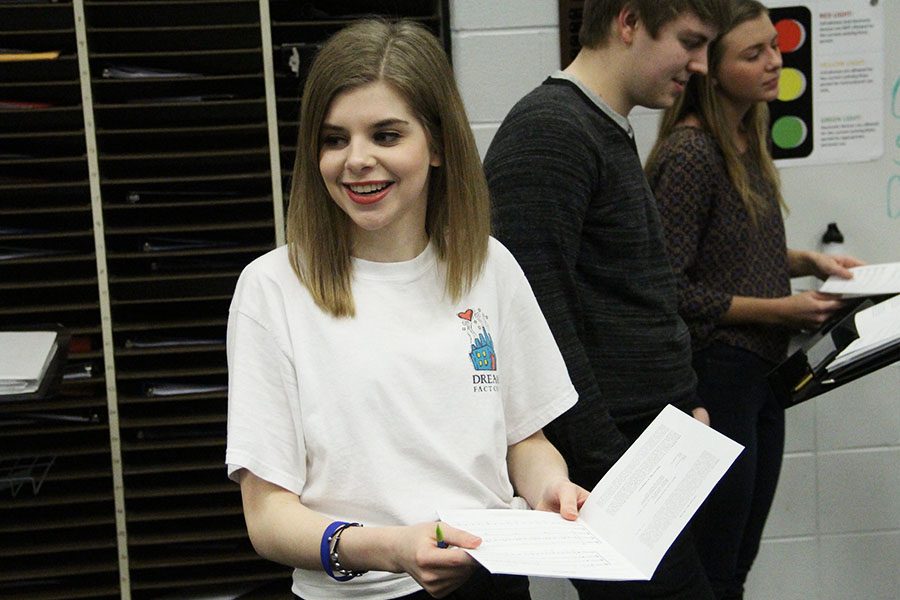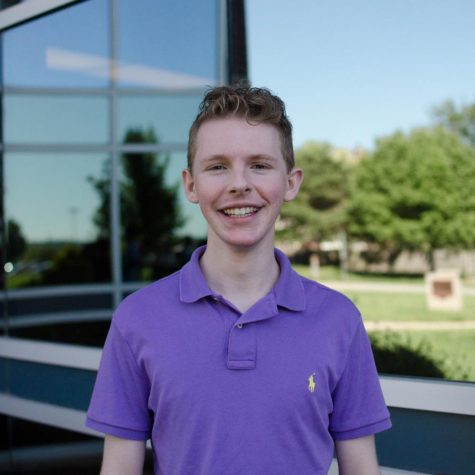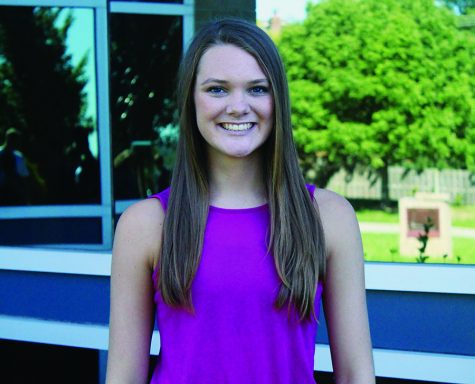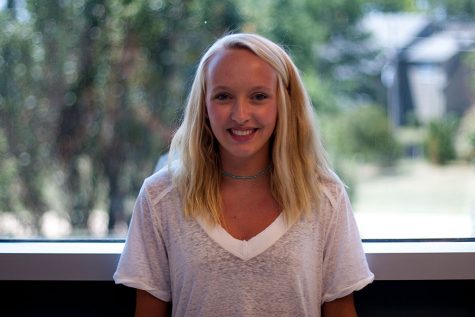A positive event
After fighting off an autoimmune disease and receiving blood transfusions, Junior Allison Policky donated blood at the Jan. 18 blood drive.
January 18, 2017
After being diagnosed with an autoimmune disease in 2015, Junior Allison Policky said she fought it off with corticosteroids, chemotherapy and blood transfusions. Policky said blood transfusions require donated blood and thus blood drives are a necessity. On Jan. 18, the annual blood drive through Community Blood Center run by National Honor Society was held in the auxiliary gym. While some students said they donated blood out of support for the community, Junior Allison Policky said she also donated blood because of her history with her disease.
“I have an autoimmune disease that caused me to have internal bleeding for about a month with no stop to it,” Policky said. “While I was in the hospital, I received blood transfusions and so to be able to give back [and donate] would be incredible.”
Allison’s mom, Betsy Policky, said this year is special for Allison because she is giving back to the community after being on the opposite end of the spectrum. Betsy said blood donations for transfusions were very important in fighting Allison’s autoimmune disease.
“This year she wants to give back,” Betsy said. “She had nine blood transfusions of her own and this year she wants to help other people [by donating blood].”
Allison said everybody will encounter someone in their life who is in a car accident or has a disease and needs blood. She said the blood drive is a great way to give back and donate to someone who could be in a potentially deadly situation.
“I would not be alive without all of the people that donated blood and all of the blood I received from them,” Policky said. “Just to know that you are saving lives is an incredible thing.”
Betsy said after her family’s experience with Allison, she learned how many patients, specifically children, need donated blood just as much as adults.
“Childhood cancer is a big reason to donate besides many others,” Betsy said. “After our experience with it, it shows just how many kids in the oncology ward really do use it.”
Jim Sajevic, Account Manager at Community Blood Center of Greater Kansas City, said about 22 to 25 percent of blood donations from mobile drives come from high school and college students. Sajevic said even though mobile drives play a large role in collecting enough blood for hospitals, it is still important to have enough of it for the Kansas City area and sometimes even the rest of the country to use.
“Community Blood center provides 85 percent of the blood that’s transfused at 55 Kansas and Missouri hospitals,” Sajevic said. “When our inventory is strong enough we actually send blood to other parts of the country to where there is a shortage. For example, on the day of the Boston Marathon bombing, we sent 125 pints of blood to Boston.”
Sajevic said the main reason people do not donate is not because of a fear of needles or lack of time but because nobody physically asks them if they would like to donate blood. Sajevic said anybody who is potentially thinking about donating should sign up to try it at least once.
“The majority of people find that [donating blood] is not painful and it is not time consuming,” Sajevic said.” In the end they are helping two patients who have cancer or are having surgery or who are trying to survive a serious accident. Blood cannot be artificially manufactured. It must be donated.”
Senior Kendall Donovan, who donated blood last year, said the actual process of donating blood is not as traumatizing as it seems.
“[Donating blood] is not as painful or scary as it’s made out to be,” Donovan said. “It doesn’t hurt too bad when the needle goes into you but just the fact that you’re giving something that can help someone else’s life is a pretty big thing.”
Donovan said donating blood is one of the easiest ways to give back to the community.
“[You just need] a willingness to give away something that you have and that’s it,” Donovan said. “I have plenty of blood so I don’t even think about needing any more of it and donating is simple.”
Donovan said the actual blood donation takes about seven minutes but blood donors should prepare for up to an hour of preparation to make sure the candidates are healthy enough to donate.
“Before donating, you have to do a self-assessed physical where you write down all your medical history and travel history and then you go into a one-on-one meeting with a nurse,” Donovan said. “She pricks your finger and take a drop of your blood for hemoglobin levels, iron levels and that sort of thing.”
Allison said she will continue to donate blood to give back to her community past the NHS blood drive.
“I’ve been waiting to donate blood for the blood drive here at school and I plan to do it every 56 days, which is the minimum amount of time between donations,” Policky said. “Knowing you are saving lives is just an incredible thing.”








